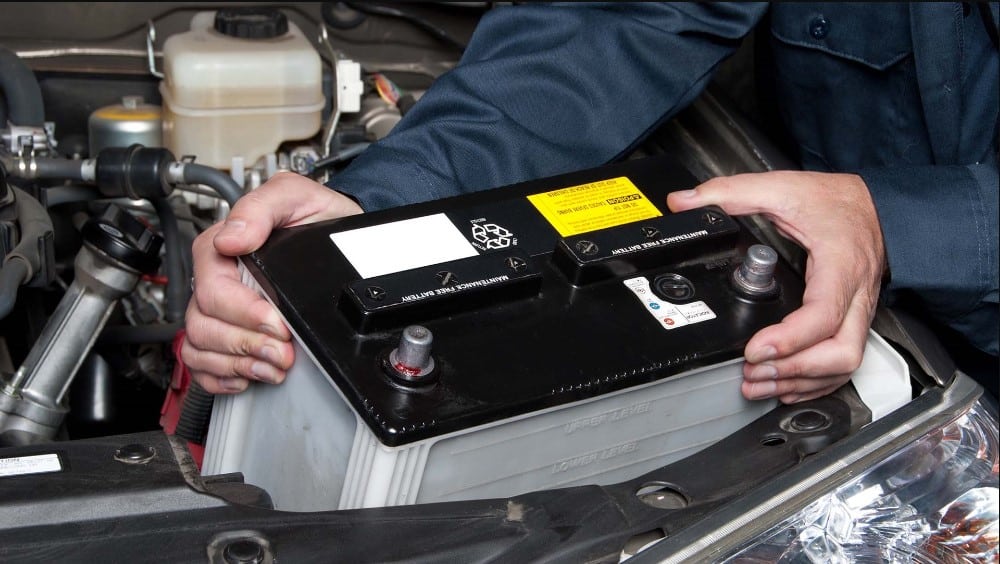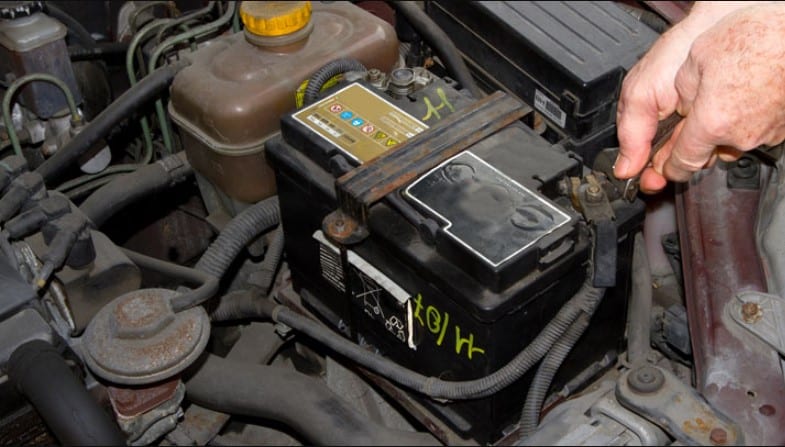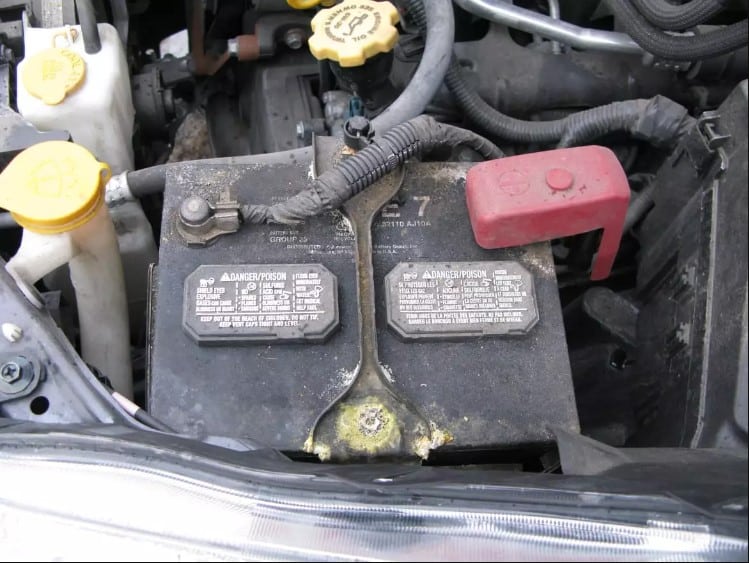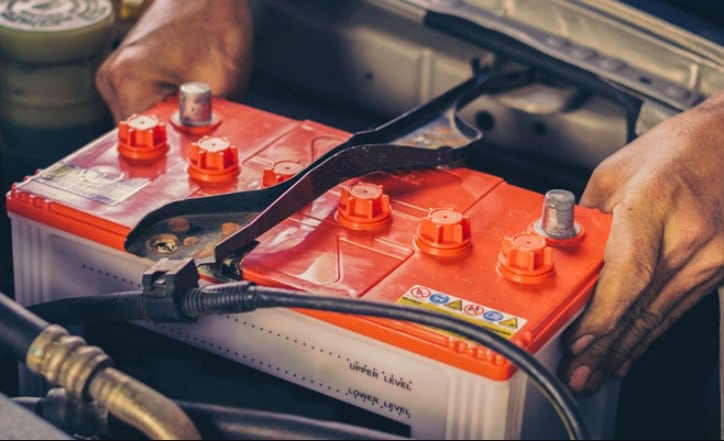How Long Does Battery Last In Car? The Definitive Guide To Understanding

How Long Does Battery Last In Car?
How Long Does Battery Last In Car? Buying a car is one of the more important purchases for any responsible adult. As such, your decision about which car to buy plays a large part in determining who would be able to survive on foot during a zombie apocalypse, and how much you'll spend to maintain that expensive individualism. This article explores what foods you must stock up on just in case, how long the battery will last in the most popular models released this year and how much fuel it'll consume on a highway trip.

How Long Does Battery Last In Car? What time is better for you to do a car maintenance check? Regardless of the answer to this question, everything from replacing your batteries to coolant repairs can be made easier with Vehicle Maintenance Software. There are lots of new features that come with these software packages. For example, auto-remote diagnostics can provide an entire host of important data to your vehicle's mechanics. Are you curious about how long your car's battery lasts? Well, in this article, we'll give you a rundown on the battery life of different types of cars and trucks, as well as some tips on how to extend your battery's life. So whether you're looking to save money or just want to know how long your battery will last before needing to be replaced, read on for all the info you need!
How Long Does Battery Last In Car?
If you are looking for a definite answer, unfortunately, it’s not as simple as just counting the number of hours on the dashboard. The battery typically lasts anywhere from 3 to 5 years but it also depends on usage. For example, if you use your car for commuting and errand running only, the battery may last closer to 3 years. But if you are also a heavy user that engages in long drives and uses the car for entertainment purposes, then the battery could last up to 5 years.

There are a few things that can shorten the battery life of your car. Excessive idling, excessive cold exposure, and high levels of vibration can all shorten the life of the battery. Taking care of your car by ensuring that it is properly garaged when not in use will also help to keep the battery healthy. And finally, make sure to keep an eye on the battery electrical system; if something seems out of place or there’s something wrong with it, bring it in for repairs so that there is no unnecessary wear and tear on your car’s battery system.
How Does A Car Battery Work?
The battery in a car is essential for several reasons. It stores energy that is used to start the engine, and it helps provide power to the various electronic systems in a car. But how does the battery work?
The battery consists of two interconnected chambers. The positively charged electrochemical cells are located on one side of the chamber and the negative cells are on the other side. When you turn the key in your car, the engine starts because of a spark from the electrodes in the distributor cap. This sends an electrical current through the coil on the crankshaft, powering the piston.

The current then flows through the heavy cables attached to each battery and into your vehicle’s circuitry. Once your engine is running, it needs constant power to run all of its electronics, which are connected to your battery via electrical connections called leads. The alternator converts mechanical energy (caused by turning gears) into electrical energy so it can be used by your car’s electronics. Without a good battery, your car might not start or it might start but struggle to stay running.
Signs Your Car Battery Is Dying
Car batteries are an important part of our lives, and they’re definitely not cheap. So when one starts to die, you know it’s time to replace it. Here are some signs your car battery is dying:
The check engine light is on
The check engine light is a warning that your car's engine may not be running as smoothly as it should. The light flashes when the car's sensors detect a problem with the engine. If you have a check engine light on, it means that there is something wrong with your car's battery. In most cases, the battery is the source of the problem. If the battery is dying, it will start to give off warning signs like the check engine light. This will usually mean that your car won't start, or it will struggle to turn over. If you're seeing these warning signs, it's important to take action and bring your car in for repairs.
Bad smell
If you notice a bad smell coming from your car, it's likely that the car battery is dying. This smell is caused by hydrogen gas buildup inside the battery. When the car battery is dying, it can give off a strong, unpleasant odor. If the battery is about to die, you'll also see warning signs on the dashboard. For example, the car may slow down or refuse to restart. If you notice any of these signs, it's important to replace the car battery as soon as possible.
A slow-starting engine
If your car doesn't start easily when you turn the key, there may be a problem with your car's battery. A slowly starting engine is one of the most common signs that your battery is about to die. When the battery starts to lose power, it can't provide enough current to the ignition coil. This can cause the car to stall on startup and make it difficult to start. In addition, a weak battery can also cause your headlights and taillights to flicker or not turn on at all. If you notice any of these signs, it's important to replace your car's battery as soon as possible.
Corroded connectors
If you notice that the connectors on your car battery are corroded, it is a sign that the battery is dying. This deterioration can happen over time due to a number of factors, including exposure to moisture, extreme temperatures, and heavy usage. If left untreated, this corrosion can lead to a dead battery. In order to avoid this issue, it is important to inspect your car battery every few months and replace any corroded connectors.

Dim lights and electrical issues
If you're noticing that your car is having problems starting in the morning or if the lights are slowly fading away, it might be time to replace your car battery. Car batteries can last anywhere from 6-12 months, but after that point, they'll start to lose power and may not work at all. The first sign that your battery is dying is when you notice that the car won't start in the morning. If you're having other electrical issues, like dim lights or nothing happening when you turn on headlights, then it's probably time for a new battery.
Old battery
If your car battery is older than three years, it's a good idea to get a new one. This is because old batteries tend to die faster and they're not as reliable as newer batteries. Old batteries also have a reduced capacity and they don't hold their charge as well. If your battery is weak or dying, it might not start your car, it might provide less power when you need it the most, or it might even give out completely in an accident. By getting a new battery, you can avoid any problems and keep your car running smoothly.
A misshapen battery case
If you notice that your car battery case is misshapen or appears to be bulging, it's time to replace it. A misshapen battery case is one of the first signs that your car battery is dying. The cells in the battery are unable to hold a charge and will eventually cause the case to deform. This will make it difficult for the car to start and increase the chances of a battery explosion. You should also replace your car battery if you see any cracks in the casing or if the battery starts losing its ability to hold a charge.
Why Do Car Batteries Die?
When you buy a car, the manufacturer includes a standard 12-volt battery. This battery powers all electrical systems in the car, including the headlights and vehicle accessories. Battery life is typically around 3-10 years, but it’s important to keep your car’s battery healthy and functional for as long as possible. Here are some key reasons why car batteries die:
Excessive Current Draw
One of the biggest causes of car battery failure is excessive current draw. This happens when the battery is trying to do too much at once, such as starting the car in cold weather or when the car is being used for heavy-duty use, like tow trucking. The constant current draw can also be caused by a faulty Alternator. A car battery will not last as long if it is constantly being subjected to high current draw. To help prolong the life of your car battery, be sure to only use the features that are necessary and avoid using your car for things that it wasn't meant for, like towing.
Inadequate charging
Car batteries die for a number of reasons, the most common of which is inadequate charging. If your car battery isn't being charged properly, it will eventually run out of energy and will die. This can be due to a lack of electric outlets in your car, poorly maintained or damaged charging cords, or a weak battery.
To prevent your car battery from dying, make sure that you are using the proper charging cords and that you're plugging your car into an outlet that is properly wired. You can also try to maintain your battery by fully discharging and re-charging it every two months.
Unhealthy cells
Car batteries can die from a few different things. One of the most common reasons is when the cells become unhealthy due to overcharging or contamination. When this happens, the battery can not hold a charge and will need to be replaced. Other reasons for battery failure include using an old battery or battery that was not treated correctly with a protection system. When these problems are not corrected, they can lead to irreversible damage to your car's battery, and eventually, it will need to be replaced.

Not using the battery regularly
Car batteries typically last between 4 and 5 years if the car is not used regularly. If the battery is not used, it will slowly lose power and will eventually die. When the battery is nearly dead, it will start to produce an abnormal smell. In order to avoid having your car battery die on you, make sure to use it at least once a month. If you don't use the battery for an extended period of time, charge it up as soon as possible so that it can still function when you need it most.
Overcharging
Overcharging is one of the main reasons car batteries die. When a battery is overcharged, the cells inside can get damaged. This can cause the battery to lose its ability to hold a charge and eventually fail. Overcharging also makes the battery less able to store power, which can result in decreased acceleration and decreased steering response. To avoid this, always keep your car's battery at the correct voltage and make sure to use the correct charging equipment.
Poor installation
Poor installation is the number one cause of car batteries dying. Cars with poor installations often have wiring that's too short or not properly insulated. This can lead to excessive heat build-up in the battery, and eventually, it will die. In addition, cars with poor installations often have defective connectors and cables.
This can cause problems with the engine, the transmission, and other aspects of the car. Finally, poorly installed batteries are also subject to theft. If your battery is stolen, it will most likely be destroyed before it can be used in another vehicle.
Signs That Your Battery Is Failing
If you are having trouble starting your car, or your battery seems to be declining in power, your car battery may be failing. There are several signs that your car battery is in trouble, and it's best to take action before it fails completely.
Your Car Won't Start
Your car won't start isn't always a sign that your battery is failing. It could also be a result of a drained battery, blocked fuel supply, or faulty ignition. If you're having trouble starting your car and the battery was recently replaced, it's possible that the new battery is defective. In that case, you should take your car back to the store where you bought it and exchange it for another one.
You're Getting More Difficult To Jumpstart
There are some subtle signs that your battery might be starting to fail, and if ignored can lead to an unpleasant battery emergency.
First, if the car seems to take a long time to start when you first turn the key, or cranks but doesn't fire up, this could be a sign that the battery is weak. If the car will not start at all, this is an even more serious issue.n
Second, if your battery has been down for a while but you recently started noticing dead spots in your drive or occasional trouble getting your car started in cold weather (or after running it without lights on for a while), then you may have failed cells and should replace the battery as soon as possible.
Your Car Is Giving Off Strange Smells
If your car is emitting strange smells, it may be an indication that your battery is failing. When the battery goes bad, it will start to create strange smells due to the fact that the acid inside the battery is starting to corrode. If left untreated, this will eventually lead to an explosion.
Whenever you are having trouble starting your car or if you have been getting warning smells from your engine, it is important to monitor your battery. You can do this by checking for gauges and by checking the acid level. If there are any problems with the battery, you should take action immediately to fix them.
The Car Won’t Turn Over
In some cases, a car won’t turn over even after you’ve tried several times to turn it on. One possible sign that your battery is failing is if the car doesn’t start at all when you try to turn it on. In addition, the battery may not hold a charge very long or it may give out suddenly.
If your car's battery isn’t holding a charge and it starts up fine every time you try to turn it on, but the car won’t start after being turned off for a while, there may be something wrong with the starter. It’s important to have this checked by a mechanic if you suspect that your battery is failing.

Lights And Horn Don’t Work
When your car’s headlights and horn don’t work, it can be a warning that your battery is failing. And while there are other possible signs that you need to have your battery checked, these are among the most common. The most common battery problems are that it won’t start and there is nothing wrong with the car. If your car starts but won’t stay running, then it might just be the starter or alternator.
However, if only some of the car’s accessories stop working when you turn them off, like lights and horns, it’s likely that the battery is at fault. If you experience any of these problems, it’s time to have your battery tested and replaced. And if your car has a computerized system as many hybrids do, it may also be time to replace the computer as well.
Signs Of Leakage Or Corrosion
Leaks from the battery can occur for a few different reasons. Over time, natural chemical reactions can cause the metal to corrode around the battery cells. Additionally, if your battery is unprotected from water and other elements, it can also corrode. If you notice any of these signs of leakage or corrosion, it may be time to replace your battery. Decreased power is another sign that your battery is failing.
If your phone is not holding a charge as well as it used to, that may be a sign that your battery needs to be replaced. If you're having trouble charging your phone or if it's not holding its charge as long as it should, it may be time to replace your battery. Regularly checking your batteries and replacing them when necessary will prolong their life and ensure that your phone operates at its best.
Corroded Battery Connectors
In order to ensure your battery will last as long as possible, it is important to check the connectors each time you replace the battery. If the connectors are corroded, this is a sign that your battery is failing. corrosion can develop from a number of sources, including sulfuric acid and salt from the environment.
This corrosion can make it difficult for the connector to communicate with the battery and can eventually lead to failure. If you notice any signs of corrosion on your battery connectors, be sure to take action and replace your battery soon. By doing so, you will help ensure that your battery will last for years to come.
How To Prevent Battery Failure?
It's no secret that car batteries are one of the most commonly failed components in vehicles. Identifying and eliminating factors that can lead to battery failure can help extend the life of your vehicle's battery. Here are four tips to help prevent car battery failure:
Avoid overloading your battery
To prevent battery failure, it is important to avoid overloading your battery. Overloading your battery can cause the battery to lose power, which can result in a car not starting or being unable to turn on the lights. Overloading your battery also increases the risk of a fire. Make sure to only charge your battery when you are going to use it and avoid leaving your battery charging overnight.
Maintain your battery
One of the most common causes of battery failure is not keeping your battery properly charged. Over time, batteries will lose their ability to hold a charge and will need to be replaced. To prevent this from happening, it is important to regularly maintain your battery by charging it fully and keeping it clean. Cleaning your battery also removes any dirt, oil, or other contaminants that can damage its ability to hold a charge.
Check the connections
By knowing the common connections that can lead to battery failure, you can protect your car from becoming sidelined. When your car battery is low, it will not be able to start the engine. In order to prevent this from happening, it is important to check the connections between the battery and the rest of your car. This includes checking the battery cable, positive and negative terminals, and connectors.
https://autoemc.net/blog/how-long-does-battery-last-in-car/
Nhận xét
Đăng nhận xét